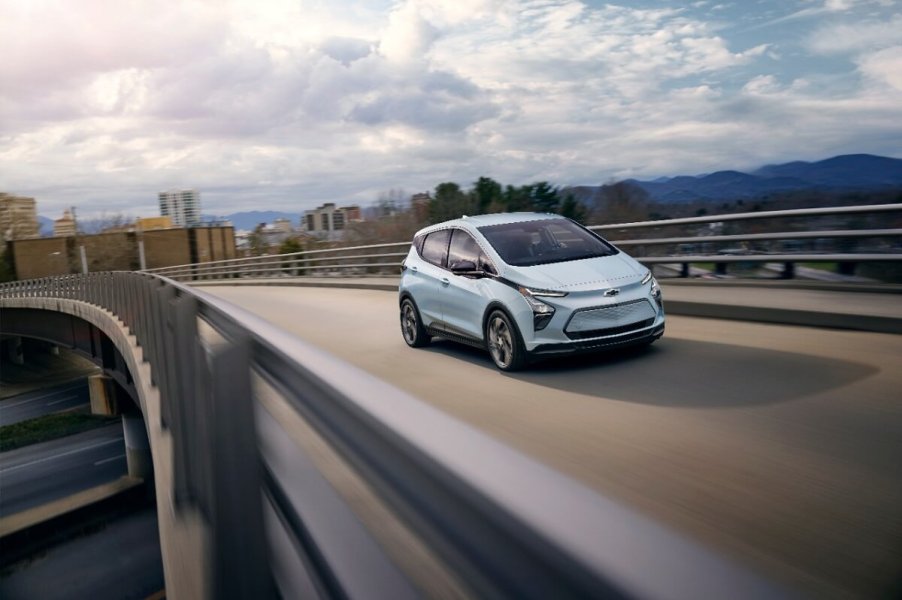
Chevrolet Bolt vs. Nissan Leaf: Which Is the Best Electric Car In 2023?
Two of the most affordable electric cars 2023 has unveiled are the Chevrolet Bolt and the Nissan Leaf, with both EV options providing a roomy interior and good performance.
When determining the best electric car, there are a few differences between the two models to consider before deciding which version best meets your needs.
Advantages of the 2023 Chevrolet Bolt
The five-door 2023 Chevrolet Bolt hatchback EV has an MSRP of $25,600, significantly lower than the starting price of $28,040 for the 2023 Nissan Leaf. Every trim level of the Bolt offers the same mileage range, but Nissan charges $8,000 more for an extended range in its SV Plus model, which has an MSRP of $36,040.
While both the Bolt and the Leaf have a basic interior, Chevy added a touch of softer materials to allow for a more comfortable cabin, unlike Nissan, which relied heavily on hard plastics, creating low-end appeal.
The Bolt also outperforms the Leaf with its interior tech features, such as a larger, more modern infotainment system with a 10.2-inch display screen compared to the 8-inch screen found in the Leaf. The Bolt also includes a remote start, Wi-Fi hotspot, and Apple CarPlay and Android Auto compatibility, not yet available in the Leaf.
When it comes to performance, the Bolt wins again, offering 259 miles on a full charge, with the entry-level Leaf S only capable of lasting 149 miles before needing to be plugged in for recharging. The Leaf SV Plus can go 212 miles but still falls short of the Bolt’s current range capabilities.
The Bolt also utilizes a powertrain that generates 200 hp, compared to the 147 hp achieved in the Nissan Leaf. To get similar performance, Leaf drivers would need to pay the $8,000 extra premium and purchase the SV Plus trim, which offers 214 hp and has comparable acceleration to the Chevy Bolt, which can go from 0 to 60 mph in 6.5 seconds.
Where the 2023 Nissan Leaf shines
The 2023 Nissan Leaf, considered one of the best electric cars of the year, receives a 72/100 predicted reliability rating, offering smooth and comfortable handling. U.S. News claims, “While the Chevy Bolt is faster, the Leaf remains more composed over rough terrain, thanks to plusher-than-expected suspension.”
Both vehicles have a regenerative braking system, with the Nissan Leaf’s e-Pedal model easy to use. Releasing pressure on the accelerator pedal allows the car to slow down and capture energy from the battery system.
Nissan and Chevrolet offer coverage that includes a three-year/36,000-mile limited warranty and an eight-year/100,000-mile battery warranty. Nissan also offers a five-year/60,000-mile powertrain warranty, providing better protection than Chevy.
The 2023 Nissan Leaf provides better cargo-carrying capacity, with 23.6 cu-ft compared to just 16.6 cu-ft found in the Chevy Bolt when all seats are in place. However, with the rear seats folded down, the Bolt offers 57 cu-ft of cargo space, far more than the 30 cu-ft provided by the Leaf, which is limited due to rear seats that don’t fold completely flat.
Lastly, the Nissan Leaf includes standard safety features such as rear cross-traffic alert and blind-spot monitoring, optional features in the Bolt.
Which EV is the better option?
The Chevy Bolt and Nissan Leaf offer great value, priced below $30K, with considerably lower maintenance and transportation costs associated with gas-powered vehicles.
Both vehicles offer a long list of available and standard safety features, receiving an overall five-star rating from the National Highway Traffic Safety Administration (NHTSA) and a Good rating (the best possible) from the Insurance Institute for Highway Safety (IIHS).
While each model offers distinct advantages and disadvantages, the 2023 Chevrolet Bolt stands out as the clear winner compared to the Nissan Leaf. The Bolt offers a considerably longer driving range, a more comfortable cabin, and a lower MSRP, providing a better overall value.


